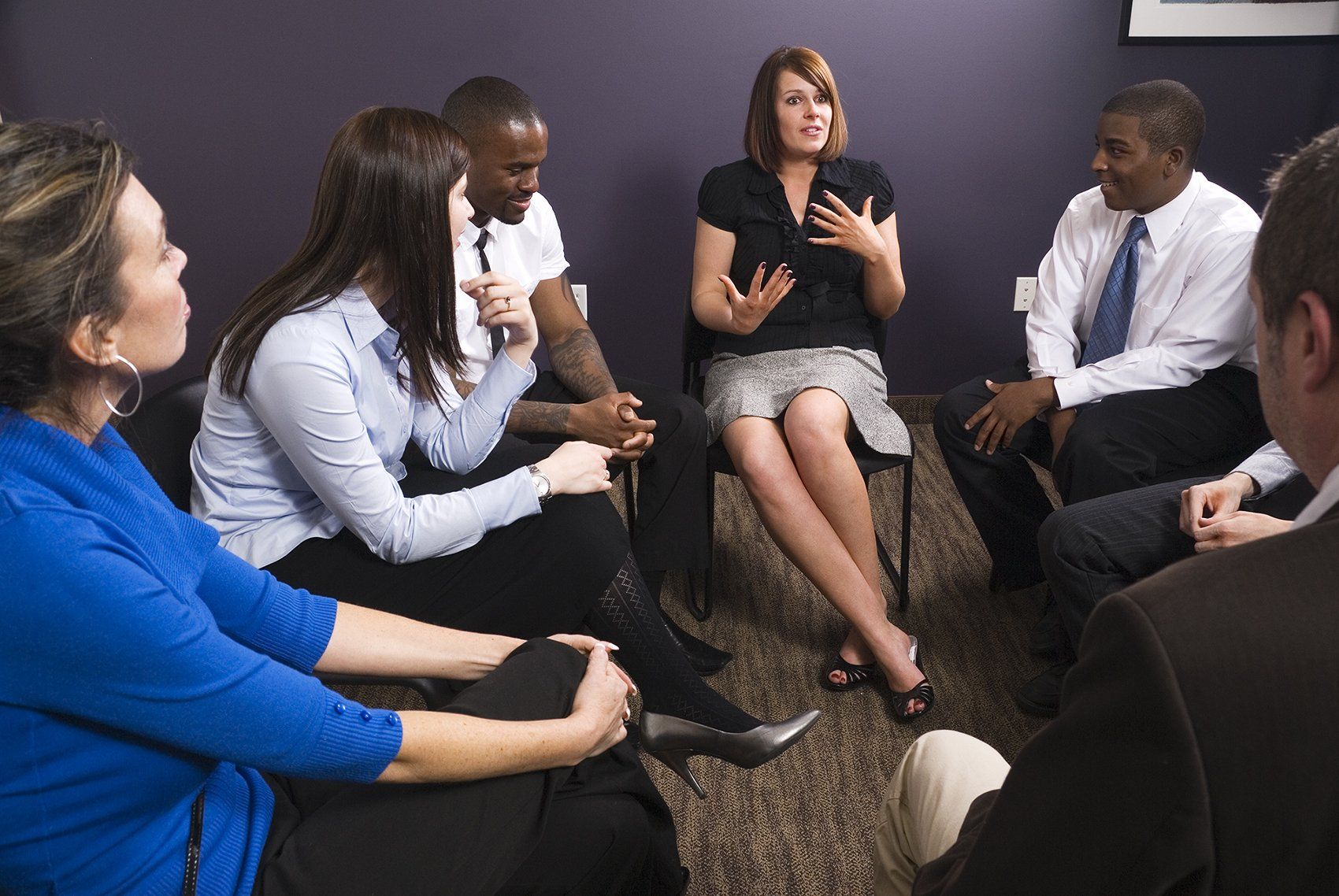Fellows' Blogs
RCBCWales is pleased to welcome you to our Fellows' blog page where our RCBCWales Fellows will share their thoughts and stories over the trajectory of their research journey with RCBCWales.
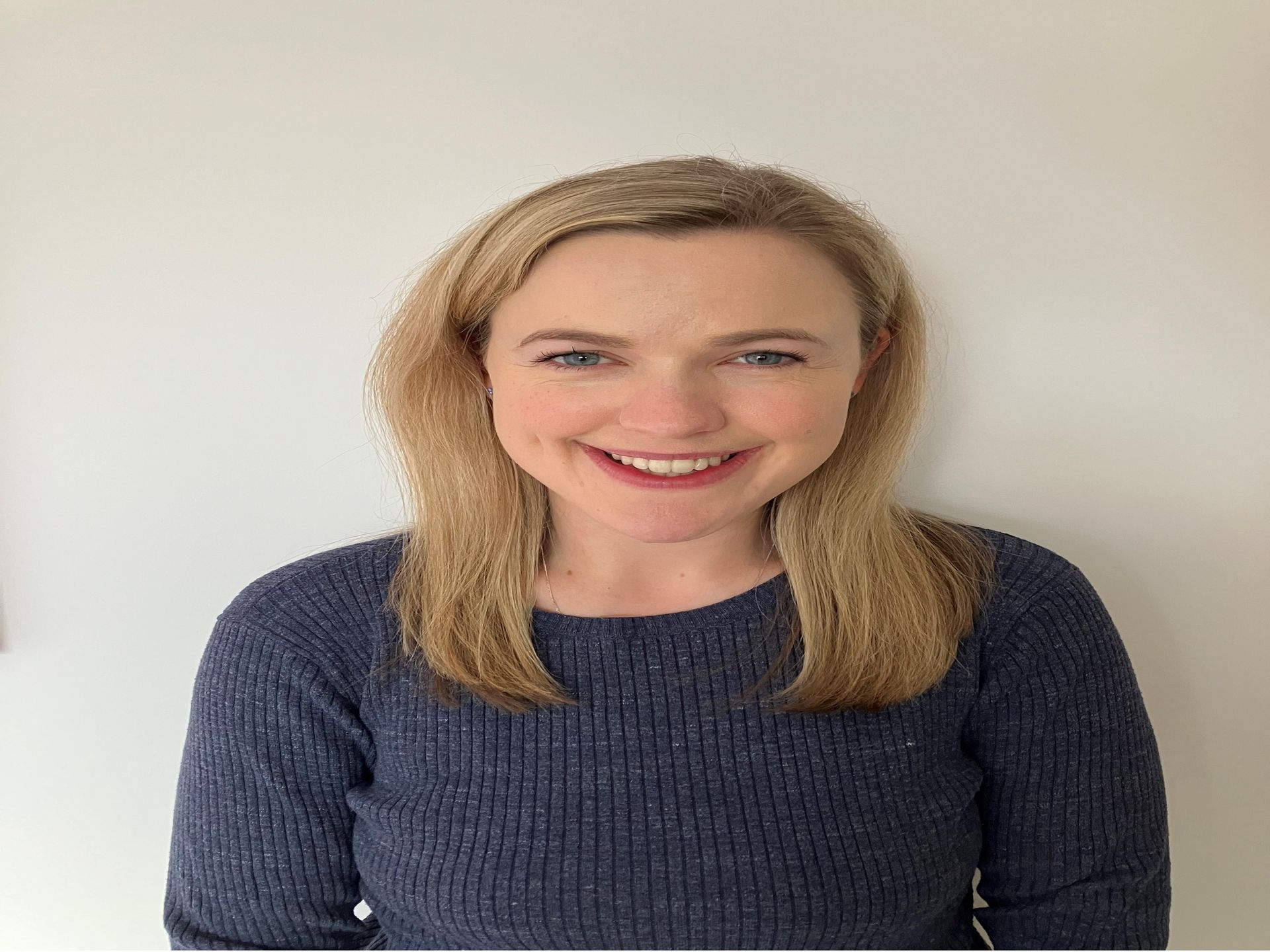
Hi! My name’s Gwen and I started my RCBC Fellowship in April 2024. To give some context, I work as the Clinical Trials and Research Pharmacist for Cwm Taf Morgannwg University Health Board and throughout my career I have noticed that despite pharmacists reporting an interest in research, this does not reflect in research engagement. With my fellowship opportunity, I decided to conduct a rapid literature review to identify, collate and appraise global literature of interventions used in the healthcare setting to build the research capacity of the workforce. Identifying strategies for building research capacity for the pharmacy workforce is a key step to firmly embed research in to every step of the pharmacy workforce career pathway. The strategies identified in the literature will be shared with key stakeholders to obtain their views and outcomes of this work will feed into the long-term strategy of Pharmacy Research Wales and the wider pharmacy profession to increase research capacity in the pharmacy workforce in Wales.
I am currently three quarters of the way through my fellowship and I can honestly say that the RCBC fellowship has not only advanced my academic work but also instilled a deeper commitment to creating impactful research that bridges gaps between theory and practice. I feel extremely privileged to have had this opportunity and to be part of the very last cohort to complete the fellowship before RCBC comes to an end. Embarking on the RCBC Fellowship has been a fantastic opportunity, one that has enabled me to network with my fellow researchers as well as develop strong links in academia. The mentorship and support I have received from my supervisors at Cardiff Metropolitan University has been invaluable and instrumental in helping me achieve my goal and complete my fellowship.

Hi! My name is Mari, and I’ve worked as a hospital pharmacist for over 20 years. In that time, I’ve never written a blog, either in a professional or personal capacity, but as the saying goes, “there’s a first time for everything.” So here goes...
I work as a pharmacist caring for people with Cystic
Fibrosis (PwCF). PwCF are often prescribed many different medicines, which may
be supplied by their General Practitioner (GP), community pharmacy, specialist
Cystic Fibrosis (CF) centre, or a homecare provider. My First into Research
fellowship has allowed me to explore how PwCF in the UK experience accessing these
supplies and to consider ways to reduce the burden of this essential but often
complex process.
The Moment That Sparked My Research Journey
I can distinctly remember the moment that inspired this project. I came across a paper in Thorax that detailed the challenges PwCF face when accessing their medicines (Herbert et al ., 2022). The findings resonated with me deeply and echoed the experiences shared by my patients. This led me to question how the process of obtaining medicines might be simplified to ease the treatment burden for PwCF.
In 2022, I conducted a small service evaluation project at the CF centre where I work. I designed an electronic survey to gather some details from the PwCF under our care which included: where they obtained their medicines from; whether anyone else helped them with this task; and what aspects of the process they found challenging or straightforward. While insightful, it didn’t provide a full picture of their lived experiences, and the idea for my First into Research project was born.
Research Progress: From Literature Review to Online Interviews
I began my First into Research fellowship in April 2024. The first six months were dedicated to conducting a rapid review of the literature. This process helped me establish the evidence base in two key areas:
- The experiences of PwCF in accessing prescribed medicines.
- How access to supplies of medicines contributes to the treatment burden for individuals with long-term health conditions.
The review uncovered six key themes that I’ve incorporated into the next phase of my project. These themes now underpin my interview schedule, which I’ve developed with valuable input from the CF community. I’m hoping to begin conducting online semi-structured interviews with PwCF from across the UK in early 2025.
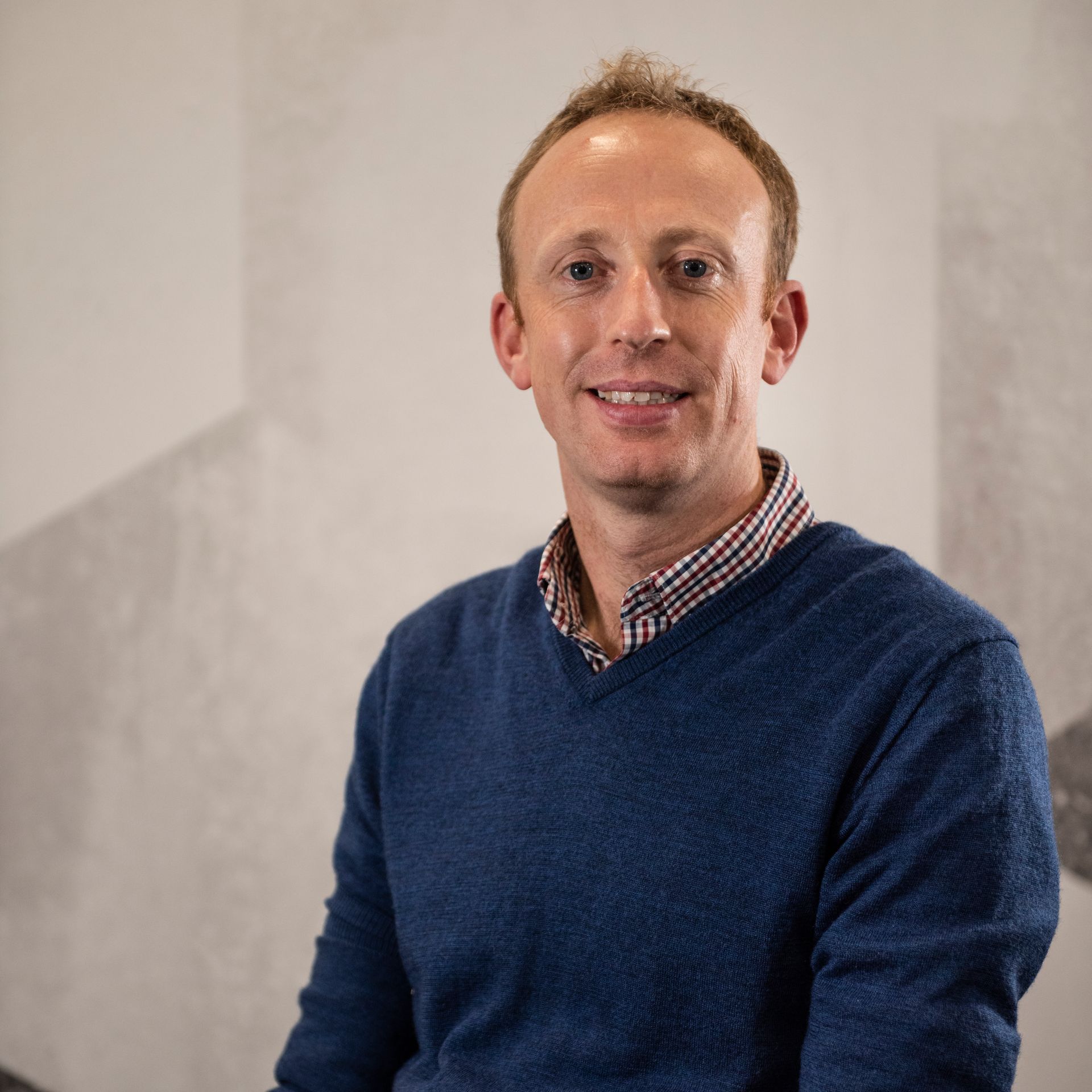
Being comfortable in the grey means accepting the position of uncertainty in clinical practice (Simpkin & Schwartzstein, 2016). This is something that I have had to develop throughout my career as a physiotherapist since I qualified 20 years ago.
The physiotherapy profession and training has traditionally been underpinned by a positivist epistemology in the quest for clinical and diagnostic certainty (Ingram et al ., 2023). Why wouldn’t it? A physiotherapist’s role is to use clinical reasoning to seek the truth, to provide definitive diagnoses and evidence-based care, usually informed by clinical pathways and protocols. However, in clinical practice it is a struggle as patients often can’t be compartmentalized like we had been taught they could (Almond et al., 2021). There is now clearer evidence that the ability to provide definitive patho-anatomical diagnoses is often not possible and the mechanisms behind most of our interventions are not well understood (Forbes & Toloui-Wallace, 2022).
Because of this uncertainty, we now acknowledge complexity and are starting to see our patients, rather than the ‘pathology’ through our decreasingly positivist tinted lenses. ‘Shared- decision making’, ‘empowering patients’ and ‘patients as partners’ are now being embraced.
When it comes to physiotherapy research, the realist panacea has not yet been able to provide the clarity that we wished for. Striving for randomized controlled trials and systematic reviews of our assessment and treatment methods has largely led to inconclusive results rather than a ‘truth’ we sought. Why is that?
People. Individuals .
Our quantitative approaches to research though admirable and important, do not take into consideration the most important aspects of any therapeutic interactions, the people at the heart of them. It has been proposed that a clinical consultation should replicate a dance rather than a wrestle (Miller & Rollnick, 2013). This analogy can also be applied to the world of healthcare research. The futile wrestle to abolish any bias in their research involving human subjects can be swapped for the dance that the researcher can perform through reflexivity. Subjectivity can be acknowledged and embraced. All researchers have baggage and through reflexivity we can embrace our positionality and interrogate it (Braun & Clarke, 2022).
I have come to learn that quantitative approaches won’t provide all the answers we seek, and I have developed a greater interest in what qualitative research approaches can offer. This is what has led me to my current foray into research where I am applying a qualitative approach for the first time. I have embarked on a project to understand the ‘preparedness’ of physiotherapy graduates as they make the transition from students to autonomous professionals. This will be achieved through interviews with recent graduates and the use of thematic analysis to interpret the data. Are they prepared for complexity and uncertainty? How do they feel about being in the grey?
I am still trying to get comfortable with the uncomfortable when it comes to qualitative research. I am learning to acknowledge ‘positivism creep’ in my work (Braun & Clarke, 2022). As I have developed my understanding that perspectives and contexts shape truths, I have moved from a realist to a critical realist ontological position. I would also classify myself as a contextualist now rather than a positivist or constructionist, as I understand that my own values, practice and experience as a researcher will inevitably shape the data that is produced through my research. So, I find myself in the middle ground of the philosophical theories, not the black of a positivist/realist or the white of a relativist/constructionist. I’m in the grey again!
Our consumption of medicines used to treat bacterial infections (Antimicrobials) is predicted to increase thrice by 2030, whilst estimates of mortality due to bacterial infections no longer sensitive to available antimicrobials are set at 700,000 per annum increasing to 10 million by 2050 (Silver, 2011; UK Department of Health, 2016; Dheda et al., 2017; Klein et al., 2018 and HM Government, 2019). The statistics certainly paint a picture of apocalyptic doom and gloom if nothing is done to remedy the situation and change the course of events. In Wales, a UK wide national action plan has been adopted, which focuses on ensuring that there is an objective utilisation of antimicrobials, finding methods to optimise their use, invest in the innovation of new antimicrobials, improve access and supply, plus reducing the non-essential use and exposure to antimicrobials (Department of Health UK, 2013; HM Government, 2019). Additionally, the Welsh government has its own national plan with the aim of addressing the problem of bacterial resistance to traditional medicines used to treat bacterial infections (a phenomenon known as antimicrobial resistance-AMR), which also aims at the innovation of new diagnostic techniques and therapies to assist in identifying priority research requirements in AMR.
Unfortunately, despite the above-mentioned efforts aimed at avoiding the return to the dark ages in terms of population vulnerability to bacterial infections due to lack of new drugs to treat them, the innovation of new drugs to treat bacterial infections has not kept up with the need (Moon & t' Hoen, 2012; Rottingen et al., 2013; Balasegaram & Brechot, 2015; Rottingen et al ., 2013; Singer, 2020). This background has developed an interest in the exploration of new sources for drugs to treat bacterial infections particularly those no longer sensitive to current available traditional antibacterial medicines which includes a group of antibacterial medicines known as antimicrobial peptides (AMPs). My project aims at investigating a novel AMP to establish whether it has the potential of being a new weapon of mass bacterial destruction (WMBDs) to assist us in the war against bacterial resistance.
So, how do we search for these WMBDs? Traditionally, a researcher will stumble across a plant or animal source of a compound with medicinal properties and work on it to end up with a new drug. However, this old process of finding potential new medicines is restricted in terms of access to these hidden molecules with the ability to cure disease as researchers can only be aware of just a few sources of these potential disease curing substances to work on and develop at any one time. Now imagine a world where researchers can run a search through the DNA of plants and animals to produce near unlimited number of these substances with the potential to cure disease, a process which makes available more potential novel compounds to refine and end up with WMBDs. This is where we are now, and my project involves the refining of a potential new substance we call stig_370a, which we have found can kill incurable bacteria (multidrug resistant bacteria MDR). Stig_370a was discovered by searching through the DNA of bacteria normally residing in soil (Myxobacteria species) which we noted have superb capability to massacre other bacteria, and the search gave us 671 predicted potential substances (called antimicrobial peptides-AMPs) (Arakal et al. , 2023). Out of the 671 potential AMPs only 117 proved to be potent enough and these had to be filtered further to end up with the AMP my project is involved with. One would think, with the ability to access all these potential disease curing substances (WMBDs), our bacterial disease treatment drug cabinet should have been full of alternative WMBDs. Unfortunately, that is not the case as the process of inventing new drugs is always a slow burner because of the various phases involved including regulatory requirements to ensure the safety of patients.
So we can readily search for potential new WMBD but the process of turning them into new medicines the populus can consume still takes a long time, the reason being while we can access large numbers of substances with the potential to treat disease, we still must transform that potential into reality by sifting through the promising candidates and find the real gems. The filtering involves the use specialised data bases to predict the structure, function and toxicity. Once that has been done then these potential compounds must be evaluated in laboratories to demonstrate predicted properties and safety of use, a process which my project is involved in. If successful at the laboratory evaluation phase, then the clinical trial phase follows culminating into hopefully, a successful approval by novel medicines regulatory institutions like the Medicines and Healthcare products regulation agency (MHRA) in the UK.
All is not doom! The good news is that the global peptide therapeutic market is predicted to increase to 50 million pounds by 2031 and that more AMPs have been approved between 2010 and 2023 than 2000 and 2009 (Cresti & Pini, 2024). Some examples of AMPs currently in clinical development include, hLF1-11 sourced from human milk and effective against methicillin resistant bacteria (MRSA), EA-230 sourced from a hormone, human chorionic gonadotropin (HCG) with immune modulatory activity, C16G2 effective against dental carries, Novexatin® which is a skin based antifungal, desquetide shown be effective against oral infections, omiganan (CLS001) effective in several skin conditions and Ramoplanin (NTI-851) on clinical trials for the treatment of several MDR bacterial infections (Cresti & Pini, 2024). In a nutshell, a combination of responsible use of the antimicorbials we have, and the revival of antimicrobial development research is what will help us avert the journey back to the middle ages.
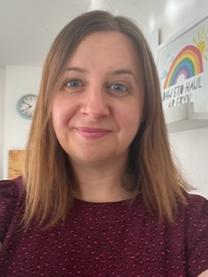
I’m writing this blog on the long train journey home to North Wales following yet another, fabulous, RCBC Wales Community of Scholars Day. Today’s session was hosted at the University of South Wales and the theme of the day was ‘Narrative’. A key focus of the day was on the ‘Power of Narrative’ and the ‘Art of Story Telling’………i.e. the importance of effective communication and how to make those important connections in order to influence and lead within research.
Whilst sitting on this train, with the countryside whistling past me, I have had plenty of time to reflect on my personal research journey and this is my ‘story’ so far…………………..and as with any good story, there is a theme, a plot, a setting, some characters, a hook and a bit of tension…..and of course an ending………
The Theme: In September 2023, I was very fortunate to start a ‘First into Research Fellowship’ funded by RCBC Wales. It is a 12 month, 1 day week, research fellowship for nursing, midwifery, pharmacy and allied health professionals, who are new to research. Actively participating within ‘research’ is a key pillar in the Advanced Clinical Practice Frameworks for most healthcare professional groups…..….., however, it is often this research pillar that practicing clinicians have the most difficulty achieving. As someone with very little experience of research, but, most importantly, have very little time to participate within research within my day-to-day clinical role as a primary care pharmacist, this fellowship appealed to me greatly.
The Plot: The new standards for the training of pharmacists in the UK, will enable newly qualified pharmacists, from 2026 onwards to prescribe independently from the point of registration. Until recently pharmacists, had to be registered for a minimum of 2 years before they could enrol on an independent prescribing course. This meant that pharmacists had a bit more experience under their belt before embarking on their role as a prescriber. Currently, we have very little knowledge or guidance on how to best support newly qualified pharmacist to enable them to undertake their prescribing roles safely and effectively……….taking into consideration that they will be novice prescribers, with limited clinical practice experience.
The Setting: My study is looking at this specifically from a GP practice/primary care perspective within Wales, as there are key potential factors that need to be considered to different health care sectors (e.g. hospital pharmacy vs community pharmacy vs primary care).
The Characters: Within my study I am undertaking qualitative interviews with experienced primary care clinicians in order to gain their views on this topic….to date I’ve managed to recruit pharmacists, GPs and advanced nurse practitioners………..…..so if there are anyone out there interested in participating in the study…..…..please do contact!
The Hook: 2026 is fast approaching……and this is big change for the pharmacy profession…..I hope that the information and knowledge gained from this study will help shape and influence future guidance within Wales. In particular, how to best support and manage the prescribing roles of newly qualified pharmacists within the GP practices/primary care.
The Tension: To be fair…….up to now ……the tension with my research story has been far and few between. Access to the RCBC Community of Scholars Days has been key to this………..the sessions organised by RCBC have been thought provoking and motivating. Indeed, having the opportunity to share ideas and experiences with the other Fellows has been invaluable. My supervisor at Bangor University is also always at hand to provide her experience and guidance.
The End:……. well………. ‘who knows,’ yet, what the ending will be……I have thoroughly enjoyed my research journey up to now. With another 6 months left of the fellowship, I still have a reasonable amount of time left. However, I certainly hope this is not the end of my personal research story………

One of the joys I’ve discovered during the past 9 months of being a ‘First into Research Fellow’ is the joy of sharing a shared interest in research with the ‘community of scholars’. This may sound like a grand title, but the compulsory gathering bimonthly of all of those who have been awarded a fellowship – either for one year, like myself, or those doing a PhD or even post-doctoral research – has been not only useful and informative, but fun too. Perhaps because we’re not so far away from the enforced confinement of the pandemic, but meeting healthcare professionals in person, from professions other than my own, who are enthusiastic and motivated about research feels like a unique opportunity that I want to savour. In many of these gatherings fellowship alumni have shared their experiences and research careers after their awards. Maybe I’ve just got really into listening to people’s narratives whilst immersing myself in qualitative research, but I have found myself thinking, ‘What a privilege it is to be here’, especially with the news that there is one more cohort of First into Research and then there will be no more.
To backpedal a little, let me introduce myself. My name is Rachel, and I’ve been a pharmacist for more than 20 years. I really enjoyed research as an undergraduate but never really had an opportunity to pursue it further. Pharmacists like to think of themselves as evidence-based scientists, and much has been made in the profession recently about research being integral to Advanced and Consultant level practice, and from the beginnings of your professional career too. I was lucky enough to be accepted to do a research methods module at Cardiff University in 2023, that was funded by NHS Wales in an attempt to get more pharmacists into research. During that module I wrote a protocol and as I wasn’t about to do another Masters, I thought that the First into Research Fellowship would be a great opportunity to turn my protocol into bona fide research. I lined up a supervisor, speed-wrote an application, got through the pretty intimidating interview (6 very clever people on a Zoom call!) and was really excited to hear I’d been successful.
The beauty of the First into Research scheme is that it pays your salary for a day a week, as well as funding support from your University supervisor, some travel costs and research costs. That day a week has become a precious, protected time to concentrate on my project, and a welcome break from the very intense and demanding clinical work I do in a GP practice. It’s great to get really stuck in and develop a different aspect of my professional life and skills that I hope to take forward for years to come.
So, my project is about the experience of pharmacist prescribers who have expanded their scope of practice since qualification – you may know that nowadays many healthcare professionals, not just doctors and dentists, have the rights to prescribe. In order for a nurse, physiotherapist, or pharmacist (to name a few) to be allowed to prescribe, they must complete a University module which has a specific, nationally set curriculum. Once they complete this, they are required to prescribe within their competency and knowledge. Typically this is initially quite narrow and then the professional works to expand it to other areas. Up until recently there has been no course or guidance on how to do this and no research into the steps the help or hinder this process. So my study is a qualitative exploration of what helped and what hindered pharmacists in North Wales in the process of expanding their scope of practice.
I’ve been doing semi-structured interviews – a totally new skill to me. I found it really difficult not to butt in with deductive questions but to let the participants speak without interruptions, but I got there in the end. I have since been ‘immersing myself in the data’ (think colourful spider grams and excel spreadsheets) and stumbling my way through an inductive thematic analysis. My supervisors (I was lucky to have two as they both work part-time!) have been really supportive, nudging me in the right direction. I live in North Wales and they’re based in Cardiff so it’s been mostly online, but that seems to have worked out alright. I’ve just written an abstract and I’m hoping to submit that for a conference next week and my supervisors are sure I can get a paper out too in the three months left! Now I have some conclusions I’m starting to get invitations to share my work with various committees and teams, which is really gratifying.
All in all, I would totally recommend the First into Research experience. Thank you so much to everyone involved in running and organising it. I hope there will be similar opportunities for allied healthcare professionals and scientists in the future.

Hello! My name’s Jodie. I started my PhD in April 2022. I remember settling down on the very first day, and thinking ‘right, let’s get cracking!’ And then did precisely nothing for the rest of the day. Just had a look at some literature (I’m not sure I even read it). I remember thinking I should be doing so much, and be plugging 8 straight hours a day into my PhD, and feeling bad when I didn’t. I didn’t realise how different a PhD is. It really is self-directed, and that means you need to do and write in a way that works for you!
I’m a mental health nurse by background, with almost all of my practice being within Child and Adolescent Mental Health Services (CAMHS). I still do a bit of that, alongside writing my PhD, which is focused on the experiences of young people, family and professionals in their diagnostic journey within CAMHS. I chose this topic because I noticed that formal diagnosis within CAMHS is somewhat of a myth, and lots of young people and families would often ask me after 6 months of working with them, ‘what exactly is wrong?’ I knew the answer, but I couldn’t tell them, because that diagnosis has to be provided by a medical professional. And often, even if seen by a medical professional, a diagnosis isn’t given because it’s not deemed necessary, given that they can receive support without it, and sometimes, it can be perceived as harmful. But that didn’t seem to be the opinion of the young people and families …
So, I started a crusade. I started asking why so-and-so didn’t have a diagnosis, asking families and young people how they would feel if they did have one, and what they would prefer. The results were mixed, and when the opportunity for a PhD came up … I decided that this is something that we don’t talk enough about.
I completed my application to the RCBC, found out that I was eligible, and then had to interview for the PhD (*gulp*). I’m pretty certain I only got it through magic, but my supervisors (who I got through simply emailing everyone on the USW website who looked like they might help me) tell me that it’s because I had a really clear idea of what I wanted to do, and how I wanted to do it.
I planned a piece of research that aimed to look at how young people, their families and professionals considered and experienced the diagnostic process. I wanted to do this by speaking to them directly, and getting lots of juicy data which shed some light into their thoughts and feelings, and understand why they felt the way they did. Of course, to do this, I had to have an ethical nightmare given I was asking to interview a) young people and b) young people with mental health difficulties. You don’t get a much more vulnerable group. So I had to do the Health Care Research Wales (HCRW) ethics protocol, which took six months. Then cue another interview, where I basically had to argue against a bunch of really senior strangers that my study was valid, and necessary. I won.
Fast forward 18 months, and I’ve just finished my data collection. It took forever because low-and-behold, teenagers with mental health conditions are hard to pin down long enough to want to speak to a total stranger for free. They have enough going on, in fairness. But I finally have enough data to start my Interpretative Phenomenological Analysis (IPA), a method of analysis which considers people’s experiences in great depth, and also considers how my interpretations of this may impact the data. I obviously have a soft spot for it, so it is necessary to think about that and rein myself in.
I’m in a place now with the support of my lush supervisory team that I have submitted my systematic review for publishing, I’m presenting the findings at a conference in Barcelona in March 2024, and I hope to be on track to complete by July 2025. Afterwards, I want to shove my findings under as many noses as possible, because to me, the voice of the young people is not loud enough in their own mental health care, so I’m going to shout for them.

As well as being impressed by your lean approach to working processes - the removal of waste, the added value - my biggest take away was the underlying culture. It seemed to be the broader culture that allowed your ways of working to actually work. What I saw made me reflect upon the culture in my own department and question whether some of the ideas I had seen might be applicable to my NHS radiotherapy setting … or not of course.
Change of organisational culture does not happen overnight. This research is just a first exploratory step in this direction. We could try and implement tools to improve our processes, and we have seen it tried over and over, but it is the culture within the NHS that prevents lasting, sustainable benefit. This is what drives my research, to take a new look at industry and see how do they can make it work. After visiting Deeside it was clear to me that we cannot just change how we work, we also must change how we are. Someone has to be brave enough to question how might we go about changing our culture for the better. I believe we can learn a lot from Toyota, it’s clarity of culture is something that spoke directly to me. The culture is clear and explicit, whilst NHS culture is hidden and opaque.
I believe that staff cultural issues are not limited to any one department within the NHS but more a culture that has developed throughout the organisation.
I came away from Deeside feeling despondent about our own culture and how the potential the NHS has to be something truly amazing is not achieved. At the same time I felt enthused as I had seen a demonstration of how a thoughtful culture could improve staff morale and cohesion in a way that I could relate to.. The NHS culture is inconsistent and all about quick wins, whereas Toyota seemed to focus on the long term, even at the cost of short term loss to achieve it.
I have made some points below of the things that had the biggest impact on me when I was at Deeside, plus the things that I feel lie at the heart of our culture that might be addressed by Toyota ideas .
- The encouragement for staff to innovate. Staff were given permission to have ideas and to own those ideas. The ideas were directed at making what they were doing better. They were given time and support to implement and make changes. There was no obvious mountains of red tape to say “great idea but it’s not your job to have ideas and make change so we will give that to another person.”
It is my view that within our culture staff are implicitly not given permission to have ideas of improvement, and definitely not allowed ownership of the idea. If someone does have the energy to persist with an improvement idea, even if very small and is not directly related to patients they have little encouragement. It is very much an uphill struggle.
This aspect of the Toyota culture had a huge impact on me. The ability for staff to make small but effective changes to their working environment could have disproportionate impact in our department.
- The value that is placed on staff. Being amongst staff of all levels, it was impressive to observe how staff felt valued and listened to.
From conversation with staff in the NHS there are issues around feeling valued and listened to which leads to a host of different behaviours. The data that is generated from the interviews I will be undertaking as part of my research will be interesting regarding this area.
To value staff and to actively show they are being listened to is a powerful thing that can have significant implications for the care that patients receive - both face-to-face and their treatment.
- There seemed to be effective communication everywhere I looked and listened: from the immediate attention given when there is an issue to the anti-silo working of the factory floor.
Over many years the culture within the NHS has stagnated into one of silo working, often working against each other The feeling amongst staff, from conversation had informally, is of a lack of communication from management and a reluctance to engage when there are issues. This has created a toxic culture and very low morale that has a detrimental effect on patient care.
To have more open communication and a sense that everyone is working towards the same goal would, I suggest, have positive effect of patient care and staff retention. Staff recruitment and retention is a big issue!
- The setting of a standard – this was probably the first and biggest thing that struck me. That in the Toyota culture there is a standard, and that standard is set, maintained and accepted by staff.
We have policies and procedures but these are often followed without conviction or sometimes are not followed at all. Low staff morale and a lack of accountability for actions are evident. This creates regular conflict within or between teams, making for a strained working environment.
The ability for a culture to set a standard and stick to it would be a revolutionary change for us. The acceptance of a standard would seem to be that start and accountability within the culture would need to be developed. After having been in the NHS for 20years I see how a long-term management culture that lacks accountability for actions leads to negative spiral of consequences for patient care and staff morale. Emphasising accountability in our culture could partially reverse this situation with potential benefits for the standard of care that our patients receive of a magnitude or that might surprise anyone outside of the NHS.
The aim of this research study is to evaluate the extent to which Toyota cultural ideas might be applicable to an NHS clinical setting. We are looking to generate some initial evidence that might lead to a scalable ripple effect on the host culture. Research that is meaningful, has integrity and is disseminated to an interested audience. The purpose is to develop implications of the study findings, maybe some recommendations for cultural change. Recommendations about if and how we might draw inspiration from the Toyota culture to begin to improve our own. But as is always the way with research, we do not know what the findings will be until we have collected and analysed the data.
We are proposing to conduct interviews with radiotherapy staff at our choses host hospital to establish the current culture of the department: a cultural base line. Then we need to explore the perceived barriers to, and facilitators of, cultural change according to some Toyota ideas. This would require some knowledge of Toyota ideas. I will have gained some understanding during my observational visits and through reading literature. Toyota are providing a pre-recorded presentation for staff to what before their interview to explain how Toyotas culture works. This will provide an authentic description of key Toyota cultural ideas that could be referred to in staff interviews. We can explore what staff think would be the implications of a cultural change in this direction, both positive and negative.
The plan is to then interview a member of the Toyota management staff to explore the NHS staff findings. The purpose would not be for them to tell us how to change culture but to consider their experience of these matters and gain opinions on the extent to which these ideas are transferable to the NHS setting and approaches to the barriers raised by staff.
The observation days with senior managers from the department would build on what I saw previously. Observations would be done in a more systematic way to maximise the rigour of data. If possible, the intention of bringing a member of our senior management team is for them to share that observation experience and for me to gain their reflections on what they observed.
We are taking a rigorous and systematic approach to building evidence. Any arising recommendations would be based on our research evidence. This may be a slower approach than just implementing change, but we feel that considering the degree of alignment of cultural ideas is an important first step for this initiative to bring sustainable benefits.
I would stress that the aim of this research is to explore the phenomenon and produce recommendation on a way forward and not to implement any change. This will answer our research question of “ … if the Toyota culture can be mapped onto an NHS clinical setting?” Research findings are often nuanced and open to some interpretation or further work. The answer, I imagine, is unlikely to be an outright no, but more likely in the form of what the Toyota ideas can teach us about our own culture and how we can go forward to improve it.. As it is research, we don’t know what the answer will be and that is part of the fun.
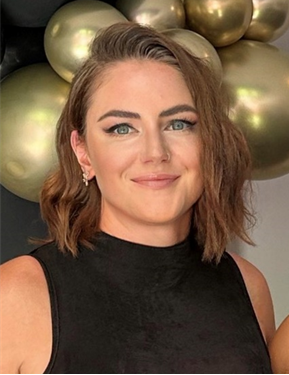
So many of us starting the research journey identify with
the above definition but it’s so
unnecessary. How is anyone ever meant to know how to research if they’ve never
done it before?
I started my research journey by supporting others with their studies largely on Thoracic prehab and blunt chest wall trauma but this is where that imposter syndrome starts, the frustration that the research I was working on was not mine from inception. How would I ever get from following in someone’s footsteps, doing exactly what they told me to do, to leading the way for others? It was my research mentor who pointed me in the direction of the RCBC first into research fellowship in 2021. I looked into the application process and started my application after attending the webinar, but my journey halted there, with the deterioration of my husband’s health. It was only when it came around again in 2023 that I sat and thought, if I don’t do it now, I never will. What I also wanted to do was set an example for my daughter. By this point we had lost my husband, her father, following his battle with cancer but I needed to show her that we do not ever give up! I submitted my application whilst I was on bereavement leave and somehow managed to get invited for interview (there’s that imposter syndrome!). However, my idea was clearly received well as here I am, an RCBC first into research fellow.
So, my idea; we were all so heavily affected by the covid-19 pandemic, and many services started to work remotely. Virtual wards became a sustainable way forward, keeping patients out of hospitals and within the comforts of their own environments. But could we do this with those people suffering with blunt chest wall trauma? Could they be managed appropriately and prevent recidivism? I sat with my mentor trying to iron out what I needed and it was so simple, we had never done this before with this patient group so thought it would be best to evaluate the service from its inception. In the meantime, I was very conscious that the September start date to my fellowship had come and gone, and I had no idea where to start. A slight delay in my university supervisor being told I had been awarded a fellowship meant that it took a little longer to sort my Affiliate staff member position. But this was sorted quickly (better late than never).
To make sure I was utilising my time as effectively as possible, I did what I could to gather as much literature around blunt chest wall trauma, virtual wards and patient reported experience measures, whilst also being in talks with the current virtual ward managers to establish how we include our blunt chest wall trauma patients within their service going forward. This all sounds plain sailing but one thing I’ve struggled with is not always having my designated day to work solely on my fellowship. Working in critical care as an experienced member of the physiotherapy team, I occasionally get pulled back to support less junior members of staff to ensure safety and provide their teaching opportunities. I’m trying to be braver to make sure I gain the time back that I lose. That’s a work in progress.
Thinking back to our first Community of Scholars day, I was racked with panic as other fellows were talking about their struggles with ethics or how far they already were within that process. We didn’t think I needed ethical approval due to my work being a service evaluation but with due diligence, I applied to my health board’s joint scientific research committee and they confirmed ethical approval was not needed, so mid-November brought the eagerly awaited start of the blunt chest wall trauma virtual ward pathway.
We are now January and we have had a multitude of blunt chest wall patients admitted to our wards. Our first patient from that cohort was admitted to the virtual ward in late November. I was ahead of schedule so a great start, but panic started to set in as the majority of patients coming through A&E were too complex to even be considered for management of their injuries via the virtual ward. I just had to remind myself that that’s ok, not everyone can be managed in this way and to try and trust the process. We would never have had the idea in the first place if we hadn’t noticed the varying degrees of disability caused by blunt chest wall trauma.
So that’s where I am, trusting the process and scouring A&E and the wards for any potential patients. The more people we can help get home and managed safely in their own environment, the better!
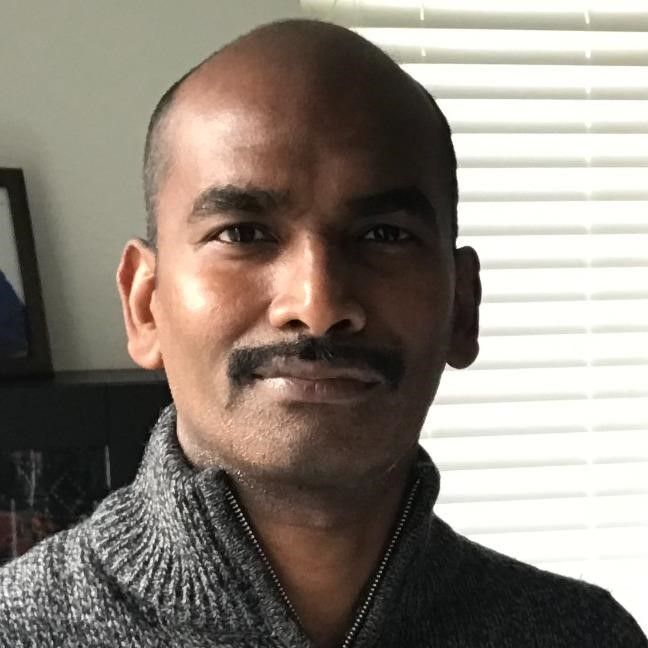
Project : Exploring the challenges experienced by the Intensive Care Unit (ICU) nurses during the organ donation process – a scoping review
Organ donation and transplantation have attracted an extensive interest among experts and policy makers in the past two decades. The ageing population and increasing incidence of chronic conditions are likely to increase the shortage of available organs globally. The critical shortage of viable organs means that patients have to wait longer for their transplant operations, and unfortunately some patients die whilst on the organ waiting list. Evidence suggests that family refusal rates for organ donation in the UK are still considerably higher than those reported from many parts of Europe.
During 2005, whilst employed as a staff nurse in the Intensive Care Unit (ICU), I looked after a 26-year-old male who died from an inoperable intracranial bleed. Following completion of the brain-stem death tests, the ICU consultant requested the Specialist Nurse Organ Donation (SNOD) be contacted, allowing the subject of organ donation to be broached with the family. The patient was left on mechanical ventilation, and their blood pressure was carefully titrated using vasoactive drugs and fluids under continuous hemodynamic monitoring. I ensured my patient received the best possible care in a dignified manner. The SNOD arrived, and I greeted the family to the ICU relative’s room. I felt anxious at the impending organ donation discussion that was about to take place with the family members. The death of a young person, who was previously fit and healthy, already shocked me to the core, and I experienced deep sadness. I was anxious facing the parents and family members in the room, because I believed that raising organ donation with grieving family would add further stress and anxiety to the family. Moreover, I was ill prepared to deal with the needs of the grieving parents.
The organ donation discussion was meticulously handled by the SNOD, but it wasn’t an easy conversation. I comforted the parents throughout the organ donation conversation and clarified queries they had around ICU care and transfer procedure. The whole process was conducted with utmost respect and dignity. At the end of the meeting, the parents positively responded to the option of donation with a ‘yes’. It was one of the most heart-wrenching experiences of my career which I will never forget. This experience also transformed my personal belief and attitude towards organ donation. Approaching the donor family and initiating a conversation about possible organ donation with them in the ICU while simultaneously continuing to care for and support the donor patient as well as the grieving family can be a most demanding and challenging task. Evidence suggests that the presence of nurses when families are approached about the organ donation process may ease families’ grief and thus facilitate the donor process, nonetheless, it’s an emotive concept that challenges nurses’ personal and professional beliefs. Therefore, I decided to undertake a scoping review to address the following questions;
· What are the challenges faced by ICU nurses while caring for patients during the organ donation process in the adult ICU settings?
· What are the reported or recommended support models or strategies that may support ICU nurses towards their role in caring for organ donors and their families during the organ donation process?
When the RCBC First into Research (FiR) was advertised, I had no idea how to make a start, but my line manager, who had successfully completed their FiR Fellowship last year, gave me morale boost and guided me through the initial application process. Then came the actual application process, the bit everyone hates, I guess. There’re two stages in the FiR application process: application for eligibility check and the submission of final application. The time gap between these two was tight, meaning you have to be super-organised and have right support from your supervisor. I was so lucky to have two amazing supervisors; they have been supportive during the writing stage of my application, especially the feedback I received on my draft application helped me a lot to produce a well refined application. Following submission, the waiting begins. Now and then, I kept asking myself – Have I justified enough why I wanted to undertake a scoping review in my application? Will I get a call for an interview? – I started to doubt myself. After 2 weeks of nervous waiting, I received an email confirming the date for my interview. What a relief!
It was an online interview, and to be honest I am not a very big fan of online interviews, but I had everything prepared; every possible question that I could expect from the interview panel. My top tips are – Read your application (over and over) and model your response. Get straight to the point, show positive vibe and stay positive during the interview. The interview went well, and after some waiting, I was finally offered the FiR fellowship – my next 12-month research journey was sorted!
My first project meeting with my supervisors and subject librarian was productive but was also quite overwhelming. There’s a lot of discussion around identifying appropriate databases, finding evidence, identifying search terms, involving public representative etc, and I must say, the first project meeting has provided me with a clear structure, it has taken away some of the anxiety about if I am doing the right thing, am I on the right path. The community of scholars’ (CoS) meetings which I attended offered an excellent opportunity to network with other fellows and hear feedback on the progress they’re making on their project. This also provided new insights into dissemination of project results. I can’t emphasis enough the importance of involving public representatives in a research project. My first meeting with the public representative, who had family experience of organ donation, was a real eye-opener, it enabled me to view the organ donation from family perspective, refine my searches and identify additional search terms for my review. The subsequent meetings with my supervisor and subject librarian all have been positive and encouraging.
The FiR is one day a week (protected study time…in theory!), but your other academic responsibilities carry on as usual, meaning you have to be extra careful with your time management. To be honest, I struggled with my time management at the initial stage of my FiR, but quickly learned lesson from it – Stop checking your emails in your FiR day! I even printed this out in big bold letters and placed it next to my laptop to remind myself every time. Although things are currently moving in the right direction, now and then, I do have self-doubts and question my research knowledge and skills – Am I approaching the research in the right way? What if things don’t go the way I wanted? Do I have plan B? I guess, it is OK to feel in that way, because I am new to research, there’s so much I still do not know or understand, and the learning curve is so steep. I am almost certain that I am not alone in this journey and there’re other fellows in the cohort might be feeling the same as me.
I have now completed my search strategy which has successfully gone through the Peer Review of Electronic Search Strategies (PRESS) process. It is like a quality assurance process which enabled me to identify appropriate subject headings, text words and retrieve additional studies. I am indebted to my subject librarian and the information specialist for their time and erudition. Also, my special thanks to my subject librarian for their patience and the time they spent on the EndNote tutorial. It allowed me to collect, organise and cite references as I was writing my protocol, it was a real game changer! I am pleased to say that my scoping review protocol is now live on the Open Science Framework ( https://doi.org/10.17605/OSF.IO/YF6CQ ), and I have also submitted the manuscript to the JBI Evidence Synthesis journal – which I am incredibly proud of. I want to thank my supervisors without whom I would not have been able to submit my manuscript.
Finally, I would encourage anyone who has an interest in research and would like to explore a burning question or conduct a study, to join RCBC FiR Fellowship. The journey with the RCBC FiR Fellowship so far has been positive and has helped shape my thinking process and challenge me. It has also allowed me to ask questions from a different perspective. I will soon be moving to the sifting process, full text screening and data extraction phase to discover more about the challenges experienced by the ICU nurses during the organ donation process. I hope to keep sharing updates at the future CoS meetings, so keep an ear out!
Thank you.


